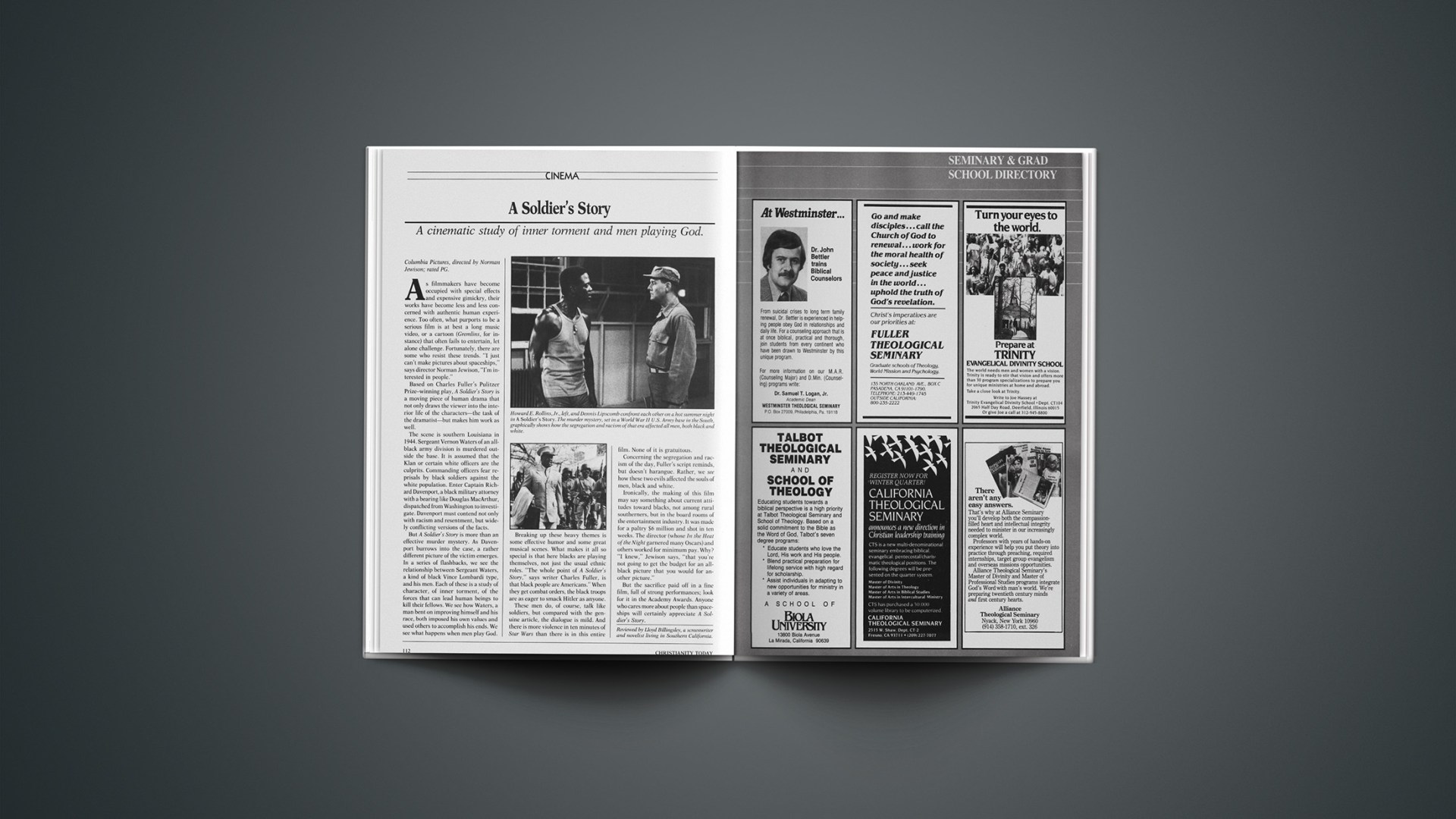A cinematic study of inner torment and men playing God.
As filmmakers have become occupied with special effects and expensive gimickry, their works have become less and less concerned with authentic human experience. Too often, what purports to be a serious film is at best a long music video, or a cartoon (Gremlins, for instance) that often fails to entertain, let alone challenge. Fortunately, there are some who resist these trends. “I just can’t make pictures about spaceships,” says director Norman Jewison, “I’m interested in people.”
Based on Charles Fuller’s Pulitzer Prize-winning play, A Soldier’s Story is a moving piece of human drama that not only draws the viewer into the interior life of the characters—the task of the dramatist—but makes him work as well.
The scene is southern Louisiana in 1944. Sergeant Vernon Waters of an all-black army division is murdered outside the base. It is assumed that the Klan or certain white officers are the culprits. Commanding officers fear reprisals by black soldiers against the white population. Enter Captain Richard Davenport, a black military attorney with a bearing like Douglas MacArthur, dispatched from Washington to investigate. Davenport must contend not only with racism and resentment, but widely conflicting versions of the facts.
But A Soldier’s Story is more than an effective murder mystery. As Davenport burrows into the case, a rather different picture of the victim emerges. In a series of flashbacks, we see the relationship between Sergeant Waters, a kind of black Vince Lombardi type, and his men. Each of these is a study of character, of inner torment, of the forces that can lead human beings to kill their fellows. We see how Waters, a man bent on improving himself and his race, both imposed his own values and used others to accomplish his ends. We see what happens when men play God.
Breaking up these heavy themes is some effective humor and some great musical scenes. What makes it all so special is that here blacks are playing themselves, not just the usual ethnic roles. “The whole point of A Soldier’s Story,” says writer Charles Fuller, is that black people are Americans.” When they get combat orders, the black troops are as eager to smack Hitler as anyone.
These men do, of course, talk like soldiers, but compared with the genuine article, the dialogue is mild. And there is more violence in ten minutes of Star Wars than there is in this entire film. None of it is gratuitous.
Concerning the segregation and racism of the day, Fuller’s script reminds, but doesn’t harangue. Rather, we see how these two evils affected the souls of men, black and white.
Ironically, the making of this film may say something about current attitudes toward blacks, not among rural southerners, but in the board rooms of the entertainment industry. It was made for a paltry $6 million and shot in ten weeks. The director (whose In the Heat of the Night garnered many Oscars) and others worked for minimum pay. Why? “I knew,” Jewison says, “that you’re not going to get the budget for an all-black picture that you would for another picture.”
But the sacrifice paid off in a fine film, full of strong performances; look for it in the Academy Awards. Anyone who cares more about people than spaceships will certainly appreciate A Soldier’s Story.
Reviewed by Lloyd Billingsley, a screenwriter and novelist living in Southern California.










